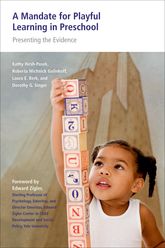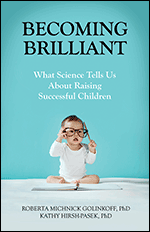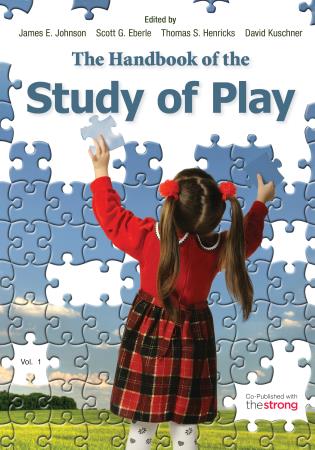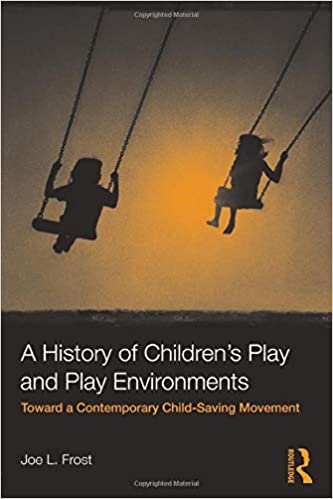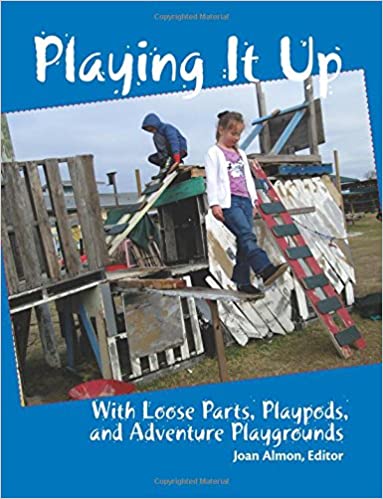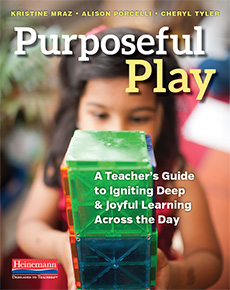and Better Students for Life" "A leading expert in childhood development makes the case for why self-directed learning -- ""unschooling"" -- is the best way to get kids to learn.
A Mandate for Playful Learning in Preschool: Presenting the Evidence
Efforts to give preschool children a head start on academic skills like reading and mathematics instead rob them of play time both at home and school. Indeed, the scientific evidence suggests that eliminating play from the lives of children is taking preschool education in the wrong direction. This brief but...
Play = Learning: How Play Motivates and Enhances Children’s Cognitive and Social-Emotional Growth
Why is it that the best and brightest of our children are arriving at college too burned out to profit from the smorgasbord of intellectual delights that they are offered? Why is it that some preschools and kindergartens have a majority of children struggling to master cognitive tasks that are...
Einstein Never Used Flash Cards: How Our Children Really Learn–and Why They Need to Play More and Memorize Less
In Einstein Never Used Flashcards highly credentialed child psychologists, Kathy Hirsh-Pasek, Ph.D., and Roberta Michnick Golinkoff, Ph.D., with Diane Eyer, Ph.D., offer a compelling indictment of the growing trend toward accelerated learning. It’s a message that stressed-out parents are craving to hear: Letting tots learn through play is not only...
Becoming Brilliant: What Science Tells Us About Raising Successful Children
Roger Caillois’ Man, Play and Games (1961) stands alongside Brian Sutton-Smith’s The Ambiguity of Play (1997) and Johan Huizinga’s Homo Ludens (1938) as a touchstone of play theory. In just a few years, today's children and teens will forge careers that look nothing like those their parents and grandparents knew....
The Recess Project Changemaker’s Guide – Blueprints for a new way to do recess
The Resources Project works with schools to support meaningful, inclusive opportunities for social connection, mindfulness, creativity, and all kinds of play. Their award-winning, evidence-based Recess Project Changemaker's Guide was designed to disrupt the outdated routines and replace them with healthy, inclusive and compassionate interactions. It is the product of a...
The Handbook of the Study of Play
The Handbook of the Study of Play brings together in two volumes thinkers whose diverse interests at the leading edge of scholarship and practice define the current field. Because play is an activity that humans have shared across time, place, and culture and in their personal developmental timelines—and because this...
Growing Without Schooling Volume 1 (GWS: The Complete Collection)
John Holt (1983–1985) is the author of How Children Learn and How Children Fail, which together have sold over a million and a half copies, and eight other books about children and learning. His work has been translated into more than 40 languages. Once a leading figure in school reform,...
Growing Without Schooling Volume 2
Volume 2 shows homeschooling gaining ground in the public's eye, and these articles reflect the grassroots nature of the movement. Stories about children learning over time; household chores and allowances; computers and television use; how to teach math, reading, and other subjects with patience and clarity, and more fill these...
Growing Without Schooling, Volume 3: The Complete Collection
Volume 3 covers a period when homeschooling was getting more local, national, and international media attention and the growth of the movement comes alive in these pages. Holt's long essay in GWS 32, "Our Legal Situation," addresses this growth and offers surprising advice to those who want to overturn compulsory...
History of Children’s Play and Play Environments – Toward a Contemporary Child-Saving Movement
Forward by Stuart Brown MD Children’s play throughout history has been free, spontaneous, and intertwined with work, set in the playgrounds of the fields, streams, and barnyards. Children in cities enjoyed similar forms of play but their playgrounds were the vacant lands and parks. Today, children have become increasingly inactive,...
How Children Fail
First published in the mid 1960s, How Children Fail began an education reform movement that continues today. In his 1982 edition, John Holt added new insights into how children investigate the world, into the perennial problems of classroom learning, grading, testing, and into the role of the trust and authority...
How Children Learn
This enduring classic of educational thought offers teachers and parents deep, original insight into the nature of early learning. John Holt was the first to make clear that, for small children, “learning is as natural as breathing.” In this delightful yet profound book, he looks at how we learn to...
Learning All the Time
The essence of John Holt’s insight into learning and small children is captured in Learning All The Time. This delightful book by the influential author of How Children Fail and How Children Learn shows how children learn to read, write, and count in their everyday life at home and how...
Play and Creativity in Psychotherapy
Includes Chapter 2 - A Closer Look at Play - by Dr. Stuart Brown and Madelyn Eberle Distinguished clinicians demonstrate how play and creativity have everything to do with the deepest healing, growth, and personal transformation. Through play, as children, we learn the rules and relationships of culture and expand...
Playing It Up: With Loose Parts, Playpods, and Adventure Playgrounds
Child-initiated, creative play is returning after decades of erosion. Through the hard work and dedicated efforts of play activists, new opportunities for play are arising, including the use of open-ended play materials in schools, parks, nature centers, and adventure playgrounds. Over 20 play initiatives are described in this book, with...
Purposeful Play – A Teacher’s Guide to Igniting Deep and Joyful Learning Across the Day
Play is serious business. Whether it’s reenacting a favorite book (comprehension and close reading), negotiating the rules for a game (speaking and listening), or collaborating over building blocks (college and career readiness and STEM), Kristi Mraz, Alison Porcelli, and Cheryl Tyler see every day how play helps students reach standards...
Swinging Pendulums: Cautionary Tales for Early Childhood Education
Thoughtful essays on topics that affect your daily work with children and their families Navigate through the extreme swings of opinion in educational philosophy, regulations, and practices and focus on the middle ground?a place where common sense and intentional teaching combine in support of high-quality early childhood care and education....
Teach Your Own: The Indispensable Guide to Living and Learning with Children at Home
Today more than one and a half million children are being taught at home by their own parents. In this expanded edition of the book that helped launch the whole movement, Pat Farenga has distilled John Holt’s timeless understanding of the ways children come to understand the world and added...
The Death and Life of the American School System
While this book is not play oriented it does tell the story of how No Child Left Behind led to play based learning being removed from Kindergarten and pre-school classrooms. In this landmark book, Diane Ravitch – former assistant secretary of education and a leader in the drive to create...


